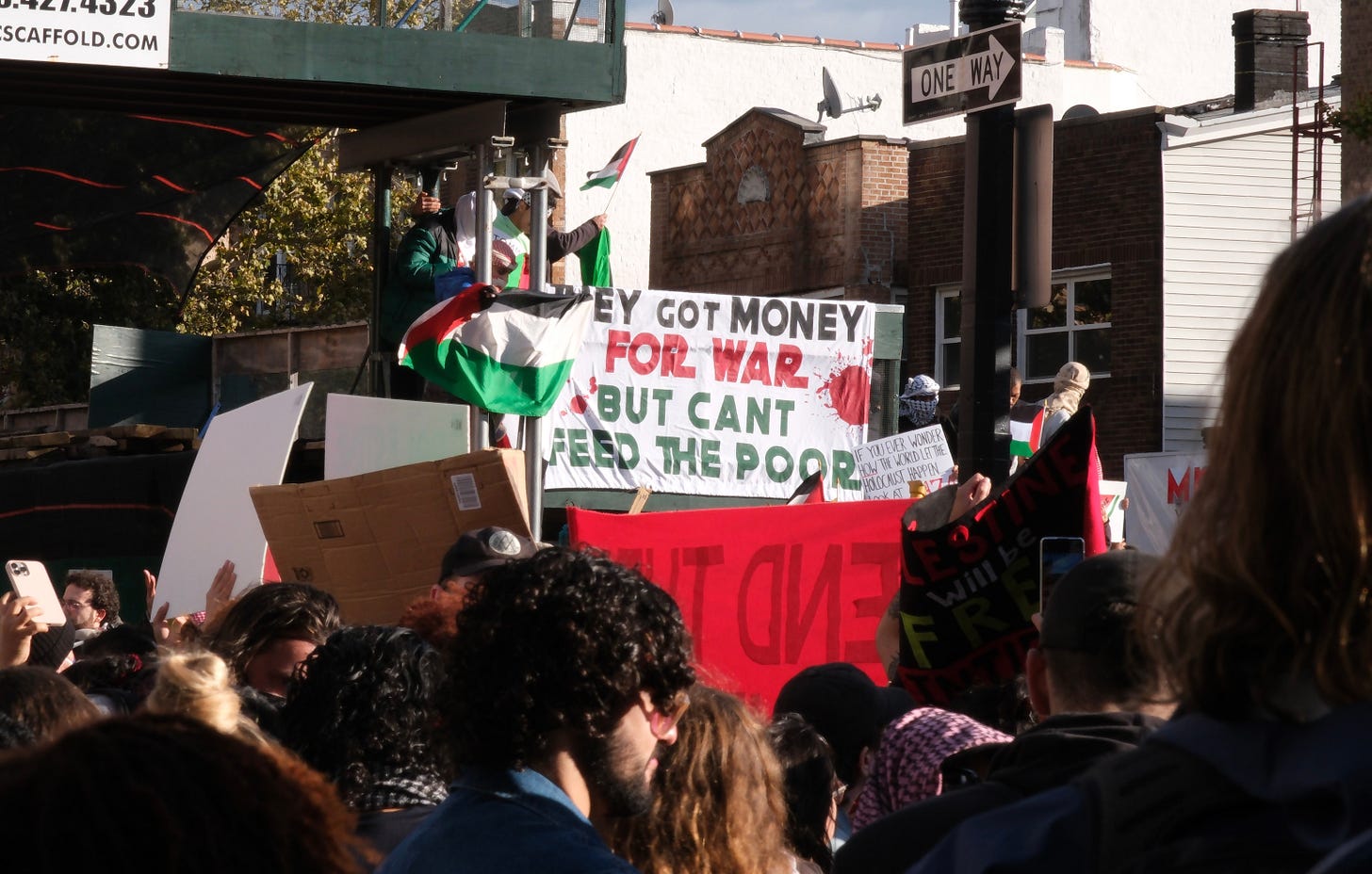A delayed reckoning with the War on Terror
The American public's discomfort with the war in Gaza is about more than just Israel and Palestine.
Earlier this week, U.S. Air Force engineer Riley Livermore went public with his resignation in The Intercept, arguing that the U.S. government “has been complicit in the genocide in Gaza.” Livermore, unlike other U.S. military dissidents, is the last person one would expect to say that. He is a 16 year career airman who comes from a Christian Zionist church. Other dissenting military personnel who spoke to The Intercept had the classic War on Terror recruitment story, joining the military in the wake of 9/11.
It made me think about a pessimistic article I had written for The Critic last year, “Why the liberal hawks rule the roost.” At the time, a much-hyped Ukrainian counteroffensive and an Iranian uprising had created a triumphalist atmosphere in Washington. I argued that, because Americans had never really had a reckoning with their wars in the Middle East, hawks were able to push a lot of warmed-over bad ideas and doves were stuck in a defensive crouch.
“America is going through a relatively level-headed interlude until it runs into another crisis. As US confidence returns, proxy warfare will turn into direct intervention,” I concluded. “Another sudden shock like 9/11 may jolt the country into making rash decisions. When that happens, doves will once again be too cowed or too irrelevant to oppose a dangerous escalation. Get ready for the next idiot crusade.”
When the crisis came, things unfolded somewhat differently than I predicted. After the October 2023 attacks on Israel, U.S. leaders’ attempts to bring back the post-9/11 atmosphere of fear and bloodlust met with surprisingly strong public backlash. Although dissent hasn’t constrained the Biden administration from supporting the Israeli army and enabling atrocities, there’s no open-ended mandate for escalation, either. Antiwar protests have become a domestic political issue with an intensity that has not been seen since perhaps since the Vietnam War.
An Israeli journalist I know has been puzzled: Why are Americans protesting so intensely against a war that U.S. troops are not fighting in? Where was this energy for the Iraq War? But that’s exactly it. The American public never had a chance to let out its frustration with the War on Terror, which instead slowly faded from the public consciousness. In fact, the Abraham Accords allowed Americans to think that maybe U.S. empire in the region was working out, after all.
The ultraviolence in Gaza has brought all the ugliness back to the fore. On one hand, Americans are being told that they have to help bomb just one more city to rubble in order to defeat Islamist rebels, another sign that decades of warfare have not brought any kind of American victory. On the other hand, there is no pretense that this war will be good for the locals. It’s a naked revenge campaign in a naked ethnic conflict.
And for the first time in years, there’s a sense of urgency and clarity in opposing a Middle Eastern war. For the last decade, U.S. wars have been confusing background noise. The two biggest crises, the Syrian civil war and the fall of the Afghan republic, both featured American’s opponents as the villains. However disturbed Americans were, and whatever feeling they had that U.S. policy was broken, there was no immediate demand for them to mobilize behind. Now there is, especially for Americans too young to have protested against the Iraq War.
Although Americans feel closer to Israel than to any other client state — Livermore, for example, went there and learned Hebrew — it is still a foreign country. And perhaps the fact that foreign troops are doing the fighting makes it easier to turn against the war. Palestinians are not killing U.S. troops, nor is Israel avenging an attack on American soil. With a little more emotional distance from the combatants, Americans can see the brutality and pointlessness of their own wars more clearly.
So the backlash to Israeli domination of Palestinians has become an opportunity to air grievances about U.S. domination of the Middle East. Americans have been waiting for it: not just Ivy League postcolonialists, but also churchgoing Air Force veterans.



